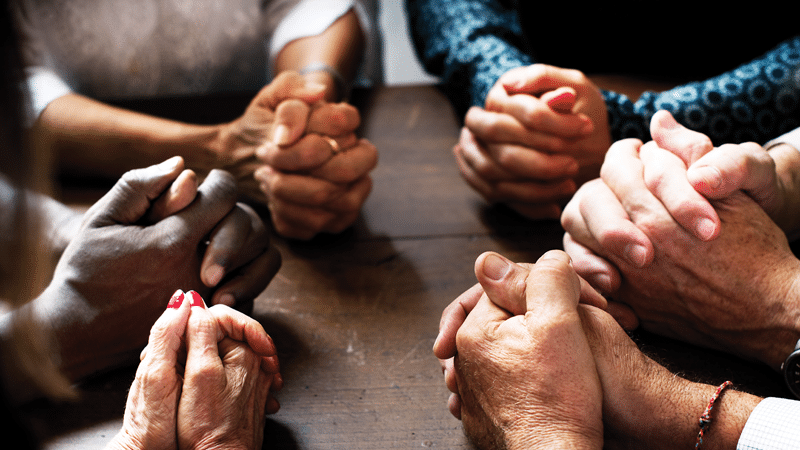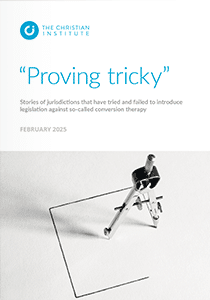MPs have challenged the notion of ‘no loopholes’ law on ‘conversion therapy’, in a debate in Westminster Hall.
Labour MP Christian Wakeford, who brought the debate, set out his desire for “all forms of conversion therapy” to be banned.
But while MPs strongly opposed abuse and coercion, several raised concerns on behalf of parents, churches and gender-confused children.
Coercion and abuse
In his speech, Mr Wakeford read allegations from people claiming to have experienced ‘conversion therapy practices’ at the hands of people in a religious setting over a decade ago.
One alleged she had been beaten and abused at a summer camp. Another reportedly claimed he was forced to watch heterosexual pornography. The man also said he had been taught that homosexuality was “disgusting in the eyes of God”, and that his parents made him study the Bible and attend regular meetings.
Without distinguishing between ordinary religious practice and genuine abuse, Wakeford described such practices as “evil”, adding “there is no place for it in any part of society”.
The MP for Bury South branded fellow MPs’ concerns that a sweeping new law would prevent parents from counselling their children when they are confused about gender or sexuality as “ludicrous”.
No debate
Wakeford, a former Tory MP who crossed the floor in 2022, called on the House of Commons not to spend time debating the issue.
He said it had to instead move swiftly to implement a broad law, claiming that a delay would see young people grow up to be “severely damaged, or, in some cases, dead”.
He also said that anyone with a concern for sexual morality in society “not only has a problem, but is the problem”, adding that allowing people to question someone’s identity leaves the door open for “vulnerable young people to be preyed upon by religious zealots and hateful bigots”.
Limiting prayer
However, despite his assertions that a ban with any caveats is “a ban in name only”, numerous MPs spoke against introducing new all-encompassing legislation.
DUP MP Jim Shannon said: “Such a ban could lead to limitations on the ability of children and youth to maintain informal or formal religious groups, such as prayer groups, which are used to promote spirituality and repentance in the Christian context.”
Prayer is “an important devotional practice that may be limited by a conversion therapy ban”, he warned.
Threat to parents
Mr Shannon also noted that according to some proposals, parents could face legal difficulties if they oppose their children taking experimental puberty-blocking drugs.
He said: “We cannot ignore this issue. It is a transformative medical practice, into which parents of children and youth surely ought to have an input”, adding that he feared “well-meaning, responsible parents” could become vulnerable to “unfair legal measures and social retaliation”.
The MP for Strangford warned: “It is vital for the wellbeing of any family that parents have the ability to raise their children within their own culture, religion or belief standards.Could we, in conscience, really want to make consensual, quiet conversations illegal?
“If they are unable to do so, we will see negative impacts on families of all types, which will affect the wellbeing of communities and schools.”
Promotes gender ideology
MPs Joanna Cherry and Neale Hanvey, both practising homosexuals, spoke against wide-ranging proposals, noting in particular that the model of affirming anyone who says they are transgender and supporting or enabling their transition could be considered a form of ‘modern conversion therapy’.
They both highlighted the fact that gender-confused young people are being encouraged to think of themselves as having been born in the wrong body, and to then undergo a course of puberty blockers, cross-sex hormones and eventually surgery to irreparably alter their bodies.
This, they said, is the very kind of practice a ban on ‘conversion therapy’ purports to stop, but would in fact promote.
Conversation ban
Cherry said that in her youth she had been a tomboy, while Hanvey said he was often mistaken for a girl. They both felt that had they gone through their teenage years now, they would have been pushed towards viewing themselves as transgender.
Conservative MP Sir John Hayes also spoke out about the need to protect private discussions about identity and sexuality, saying: “Could we, in conscience, really want to make consensual, quiet conversations illegal?
“No one in this Chamber, no one in this debate wants cruel, inhumane, spiteful interventions” he said, before adding: “Surely, we cannot ban the freedom to speak, the freedom to put our case, the freedom to converse.”
Further attempts
The debate took place the same day as a Private Member’s Bill to ban conversion therapy was introduced in the House of Commons by Conservative MP Alicia Kearns on behalf of Labour backbencher Lloyd Russell-Moyle.
The Bill’s stated aim is to “prohibit practices whose predetermined purpose is to change a person’s sexual orientation or to change a person to or from being transgender; and for connected purposes”.
A similar Private Member’s Bill was tabled in the House of Lords last month, with Lib Dem Peer Baroness Burt of Solihull seeking to impose unlimited fines for those deemed to offer “any practice” that assumes “any sexual orientation or gender identity is inherently preferable to another” and intends to “change” or “suppress” either.
Private Members’ Bills rarely become law but they could be used to influence the Government’s expected draft Bill on a new ‘conversion therapy’ law. The Bills are expected to be debated in their respective Houses next year.


